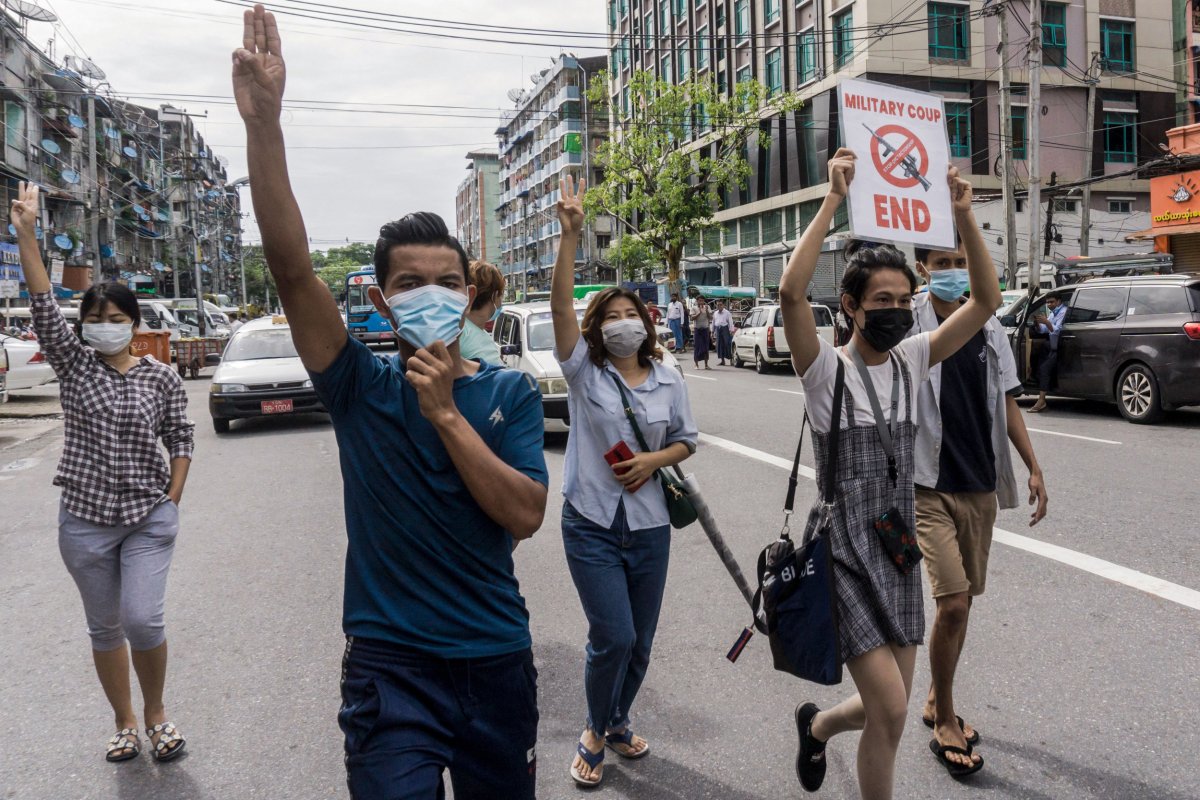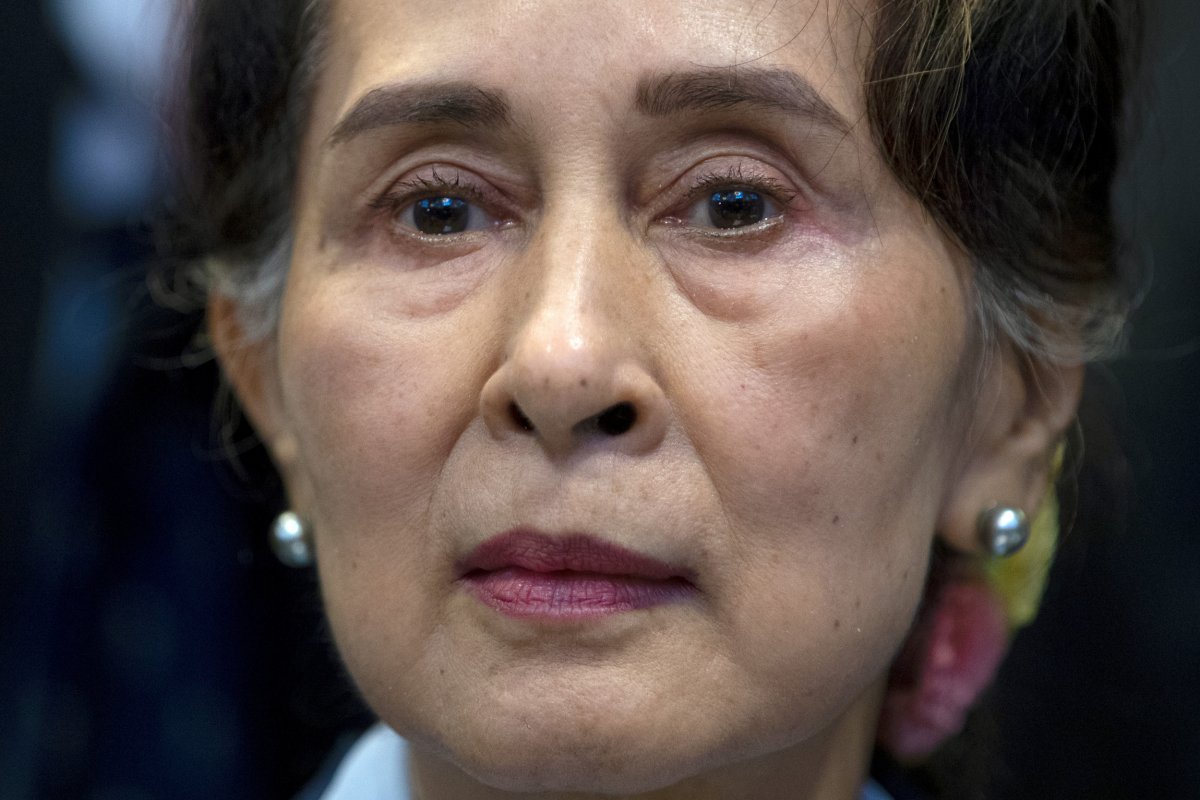Human Rights Watch has called the allegations against Myanmar's ousted leader Aung San Suu Kyi "bogus and politically motivated" in an effort to nullify the electoral victory of National League for Democracy lawmakers and prevent Suu Kyi from running for office again.
"This trial is clearly the opening salvo in an overall strategy to neuter Suu Kyi and the National League for Democracy party as a force that can challenge military rule in the future," Phil Robertson, deputy Asia director for Human Rights Watch, told the Associated Press.
On February 1, the Myanmar army seized power before newly elected lawmakers could be seated and arrested Suu Kyi and other members of her government and the ruling party. Robertson said the charges against her should be dropped, but "there is little likelihood that she will receive a fair trial."

For more reporting from the Associated Press, see below:
Suu Kyi has been charged with illegally importing walkie-talkies for her bodyguards' use, unlicensed use of the radios and spreading information that could cause public alarm or unrest, as well as for two counts of violating the Natural Disaster Management Law for allegedly breaking pandemic restrictions during the 2020 election campaign, her lawyers said Sunday.
"All these charges should be dropped, resulting in her immediate and unconditional release," said Robertson. "But sadly, with the restrictions on access to her lawyers, and the case being heard in front of a court that is wholly beholden to the military junta, there is little likelihood she will receive a fair trial."
Government prosecutors will have until June 28 to finish their presentation, after which Suu Kyi's defense team will have until July 26 to present its case, Khin Maung Zaw, the team's senior member, said last week. Court sessions are due to be held on Monday and Tuesday each week.
Two other more serious charges against Suu Kyi are being handled separately: one for breaching the colonial-era Official Secrets Act, which carries a maximum 14-year prison term, and another for bribery, which has a maximum penalty of 15 years in prison and a fine.
Although Suu Kyi faced her first charge just days after the February coup, she was not allowed her first face-to-face meeting with her lawyers until May 24, when she made her first actual appearance in court for a pretrial hearing. Since then, she had another brief meeting with them before seeing them in court Monday.
A photo of her May 24 appearance released by state media showed her sitting straight-backed in a small courtroom, wearing a pink face mask, her hands folded in her lap. Alongside her were her two co-defendants, the former president as well as the former mayor of Naypyitaw, Myo Aung.
The army justified its coup by alleging the government failed to properly investigate accusations of voting irregularities. Since then it has said it has found evidence of fraud—an assertion contested by the independent Asian Network for Free Elections and many others. Junta officials have threatened to dissolve the National League for Democracy and any conviction for Suu Kyi could see her barred from politics.
The junta has claimed it will hold new elections within the next year or two, but the country's military has a long history of promising elections and not following through. The military ruled Myanmar for 50 years after a coup in 1962 and kept Suu Kyi under house arrest for 15 years after a failed 1988 popular uprising.
The military's latest takeover sparked nationwide protests that continue despite a violent crackdown that has killed hundreds of people. Although street demonstrations have shrunk in number and scale, the junta now faces a low-level armed insurrection by opponents in both rural and urban areas.

Uncommon Knowledge
Newsweek is committed to challenging conventional wisdom and finding connections in the search for common ground.
Newsweek is committed to challenging conventional wisdom and finding connections in the search for common ground.
About the writer
Lauren Giella is a Newsweek National reporter based in New York. Her focus is reporting on breaking and trending U.S. ... Read more
To read how Newsweek uses AI as a newsroom tool, Click here.








